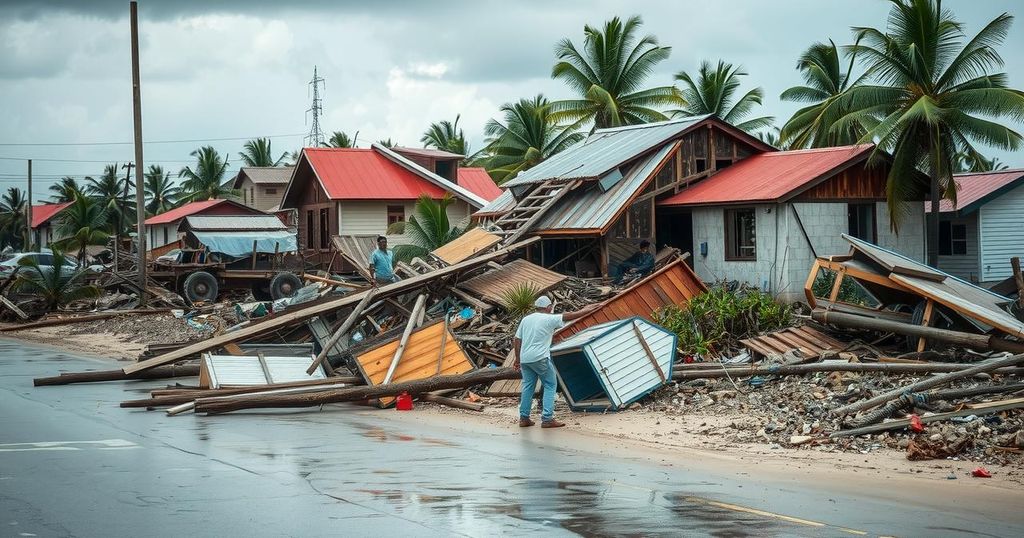Cyclone Chido has caused widespread destruction in Mayotte and Mozambique, leading to potential thousands of casualties and leaving over 1.7 million people at risk. Experts link the storm to climate change and raised sea temperatures. Rescue efforts are hindered by extensive outages and the presence of undocumented residents, complicating assessment and aid delivery.
Cyclone Chido made landfall in Mayotte on December 15, resulting in a catastrophic impact that devastated numerous shantytowns and severely damaged vital infrastructure such as the local airport. Experts attribute this storm’s intensity to climate change, particularly due to the rising temperatures of the Indian Ocean. The cyclone has led to widespread outages of power, water, and communication systems, complicating ongoing rescue operations. Tragically, the death toll from the disaster is feared to be in the thousands as rescue efforts continue under challenging conditions. Following its initial impact in Mayotte, Cyclone Chido subsequently struck Mozambique, exacerbating the situation with further destruction. The United Nations Office for the Coordination of Humanitarian Affairs (UN OCHA) reports that approximately 1.7 million people in the affected region are currently at risk. In response to this crisis, European Union Chief Ursula von der Leyen, alongside the World Health Organization, has vowed to provide assistance, although the presence of about 100,000 undocumented residents in the impacted areas is impeding comprehensive damage assessments.
The phenomenon of Cyclone Chido highlights the increasing severity of natural disasters linked to climate change, particularly in coastal regions like Mayotte and Mozambique. Rising ocean temperatures are increasingly seen as influential in intensifying such cyclonic events, resulting in substantial human and infrastructural damage. The situation is compounded by limited facilities and resources for rescue and recovery operations, especially in areas with unregistered populations that complicate aid distribution and damage evaluations.
In summary, Cyclone Chido has inflicted severe damage in Mayotte and Mozambique, with thousands potentially affected by the disaster. The connection between the cyclone’s intensity and climate change underscores the urgent need for comprehensive strategies to mitigate future risks associated with severe weather events. The international community is called to action in supporting recovery efforts, despite significant hurdles presented by infrastructure damage and unregistered residents throughout the affected areas.
Original Source: m.economictimes.com






